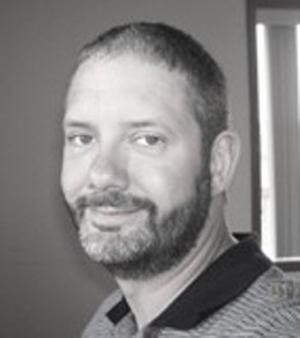By Derick Cranston
“I always had a strong belief in God. Something happened, though, that just did not make sense, and changed all of this for me. I can no longer go to church; I feel guilty, like I am being judged … I often wonder if there is even a God.”

This was a remark a 22-year-old made to me, when we were discussing his combat experiences in Iraq and Afghanistan. He mentioned that he had killed others and had seen his good friend get killed. But even this did not shake his belief in God; it was an experience “that just did not make sense” which changed all this for him. Based on our conversation, I am pretty sure he was referring to an episode that happened on the battlefield. I did not want to push him on what this horrific experience was. He got that vacant “thousand- mile-away stare” in his eyes, and I could visualize he was seeing it all over again in his mind. I shudder when I try to think of something worse than killing someone or seeing your buddy die.
Although it is glorified in movies and video games, killing is not something that comes naturally to a human being. Ask any soldier – willing to discuss it – and that person will tell you so. Dave Grossman, a lieutenant colonel in the U.S. Rangers with a master’s in psychology, points this out in a book bluntly titled “On Killing.” He states that only about 2 percent of the population can kill another human being without experiencing deep feelings of remorse. He came to this conclusion through numerous interviews with combat veterans, and years of research.
Almost all of them experienced an overpowering, visceral reaction in every fiber in their body not to kill. When confronted with this moral dilemma, they are forced to do one of two things: overcome this God-given instinct which recognizes the sanctity of life, or listen to their instincts and not kill the enemy. If they choose the former, a part of them dies along with the person they kill; if they choose the latter, they live with lifelong guilt that the enemy they did not kill may have gone on to kill one of their buddies.
How do you minister to someone who has experienced this horror, this literal hell? What words of consolation could I give my young friend that might help lead him back to his faith? Nothing, nada. In moments like this, the only thing you can do is listen. Only time and distance can even begin to heal such a deep wound upon the psyche and soul. We listen, but we have no answers. We listen … just as God listens to our prayers without giving us a clear and definitive answer. God does not directly answer us because a part of prayer is working it out for ourselves. The only way we can work it out though, is to have someone to listen to us.
God listens to us, but we cannot see, hear or touch him. But if we look closely enough, we can find God present in the form of a friend, minister or therapist who will simply listen to us. As ministers, lay leaders and priests, I have a feeling we will see more young people returning from Iraq and Afghanistan with combat-related stress. We must be ready for this. We must be willing to listen and let God be present in us and work through us. We listen and pray that somehow, someway God will work through us to reach those in such a dark place. We can be the light “that shines in the darkness, and the darkness does not overcome it.”
(Derick Cranston is youth minister for St. Mary Parish in Riverside, Holy Trinity Parish in Richmond and St. Joseph Parish in Wellman. He is going through diaconate formation and can be reached at derickcranston@gmail.com.)








